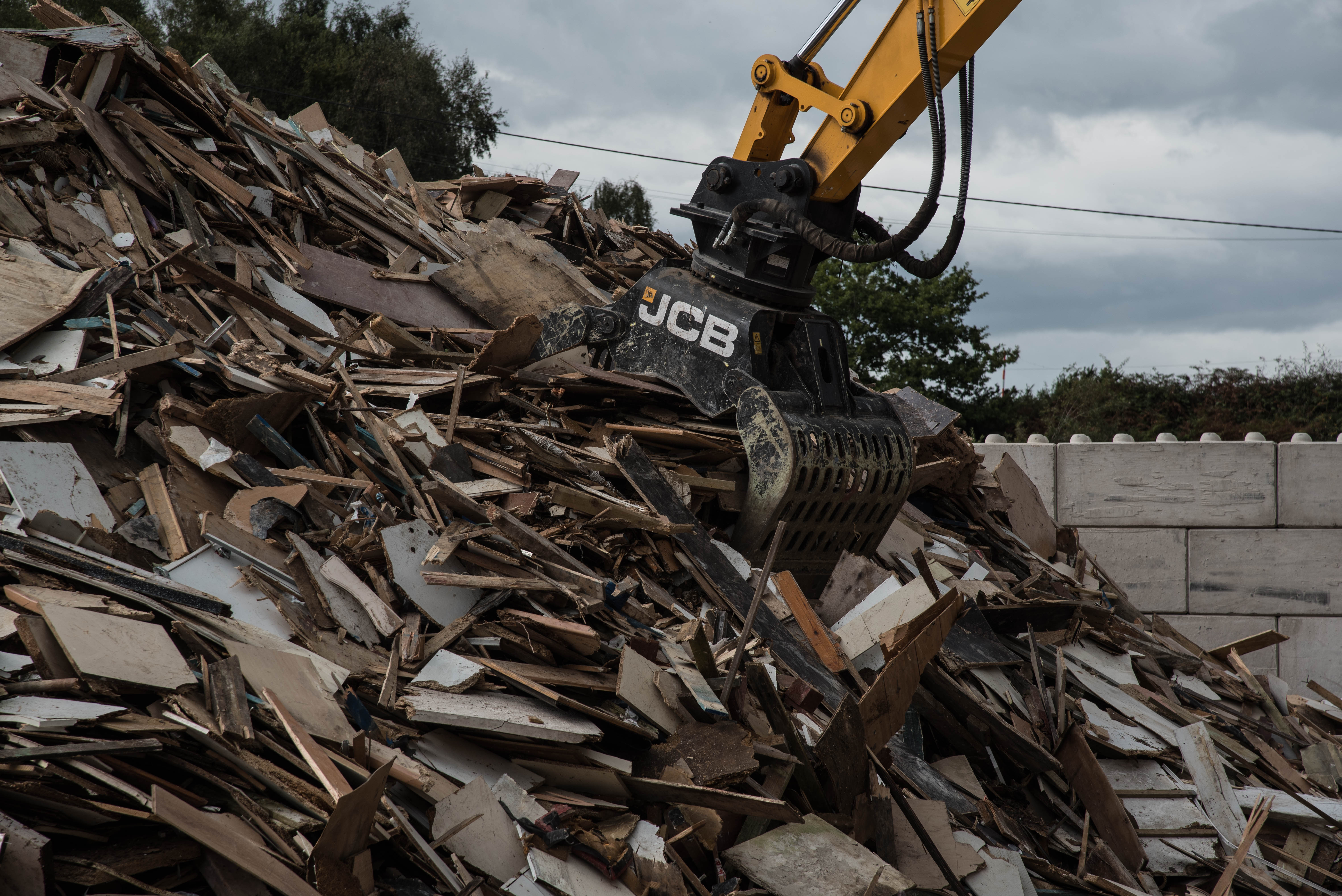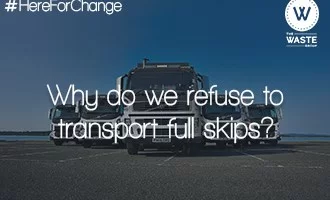How Waste Management and Climate Change Are Intrinsically Linked

Every day, you make little decisions that affect the health of the planet – including your method of waste disposal. The way you manage waste can have a significant impact on local animal and plant life. But more than that, it can contribute to environmental threats on a global scale, releasing methane and carbon dioxide into the atmosphere, and accelerating climate change.
When it comes to minimising your impact on the planet, the more waste materials you can send to the recycling centre instead of landfill, the better.
But why is that? Let’s explore the link between waste management and climate change to better understand how recycling waste supports the local environment and helps combat global warming.
The connection between waste and greenhouse gas emissions
Landfill sites and methane emissions
Waste that winds up in a landfill site starts to rot. Green waste like food will decompose the fastest, while plastics take a long time to break down into microplastics, which ultimately contaminate soil quality.
All these decomposing waste materials release gases. Landfill sites are among the largest sources of methane produced in the nation. In fact, methane emissions make up about 50% of landfill gas. Methane is more potent than carbon dioxide (CO2), and the U.N. has stated that a serious reduction in methane gas is the quickest way to slow climate change.
Incineration and carbon dioxide
Waste that doesn’t sit in landfill sites is incinerated, releasing 0.7-1.7 tonnes of CO2 for every tonne of waste burned. And that’s not even accounting for the energy required to burn waste.
Higher rates of CO2 in the atmosphere contribute to global warming, and we’ve seen a 50% increase in carbon in the atmosphere since the beginning of the Industrial Age. This imbalance in the atmosphere is causing the unprecedented warming of our planet.
Transportation emissions
Transporting waste makes an environmental impact, too. The waste sector uses heavy diesel trucks for waste collection, each one spewing harmful emissions into the atmosphere every day. Using diesel trucks to remove waste to landfill sites and incinerators further compounds the negative effects of this irresponsible mode of waste removal.
Strategies for reducing waste-related emissions
Effective waste management reduces our contribution to climate change. As leaders in the waste sector, we’re proud to be part of the solution.
You can reduce emissions, too, by decreasing your waste generation and disposing of your waste responsibly.
Recycling and composting
Recycling centres are incredibly powerful environmental control systems.
Start by separating mixed municipal waste from your recyclable items, placing recyclables in the appropriate recycling stream, and disposing of nonrecyclables responsibly. Recycling centres drastically reduce solid waste emissions while saving millions of tonnes of waste from landfills and incineration every year.
Composting, whether in our own garden or through a green waste centre, also helps reduce methane gas emissions, creating a vital resource from discarded food rather than letting food waste rot in a landfill.
Energy recovery
Innovations in waste-to-energy technology can help reduce our reliance on fossil fuels, too.
This eco-friendly tech can capture the methane generated from existing sanitary landfills and burn it as a source of energy. The energy produced by incinerating waste can be added to the nation’s energy grid, too, putting our waste to work for us!
Sustainable practices
By adopting sustainable and eco-conscious waste handling practices in our daily lives, we can greatly reduce our impact on the environment.
Firstly, focus on reducing the amount of waste you produce. Try to steer clear of single-use plastics, consider packaging before you make a purchase, and plan your weekly shops to help with food waste prevention.
Repurposing materials to reuse items that would otherwise become waste is another way to effectively reduce the waste you produce. If reusing isn’t an option, then do your best to recycle and compost as much as possible.
The Waste Group’s role in combating climate change
As waste management experts, we’re determined to make sustainable waste management solutions the norm in the UK.
We’re committed to helping individuals and businesses reduce their carbon footprint as we all work towards a brighter future together.
Offering sustainable waste management services like our responsible tipping facilities and an eco-friendly commercial bin service, taking necessary climate action has never been easier.
Ready to start making positive changes in your waste management habits? Get in touch today to request a quote or to learn more about our eco-conscious services and initiatives.



